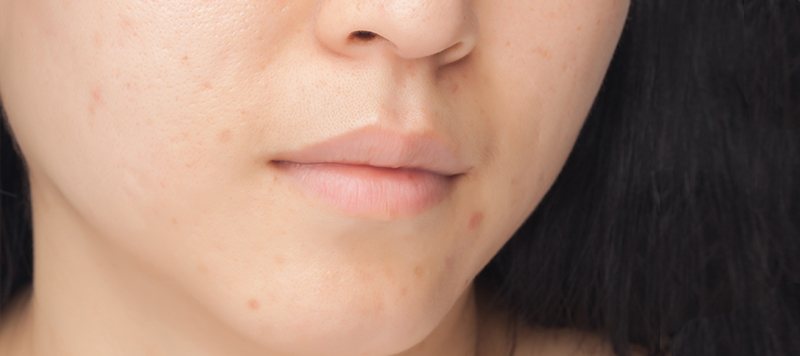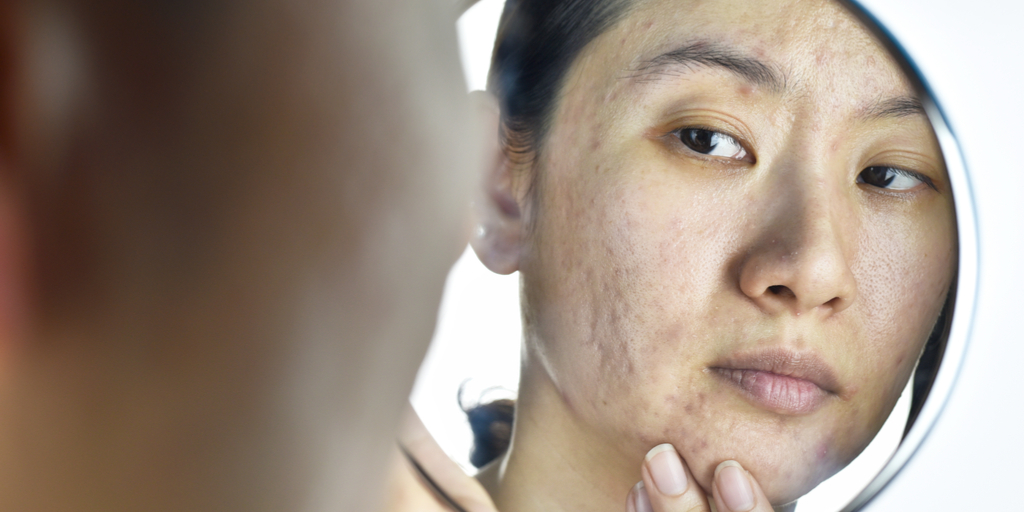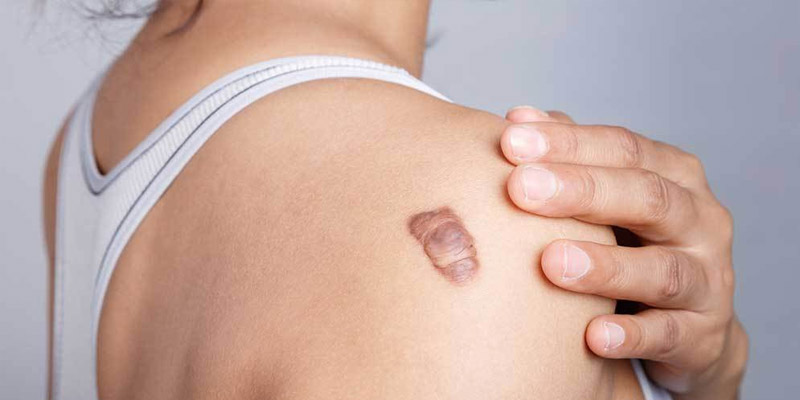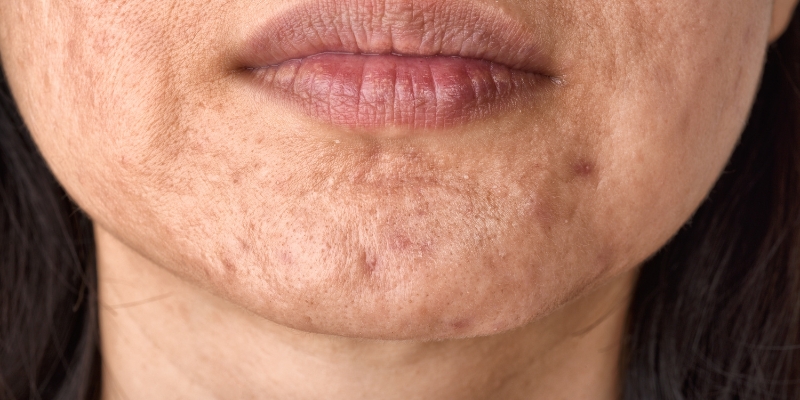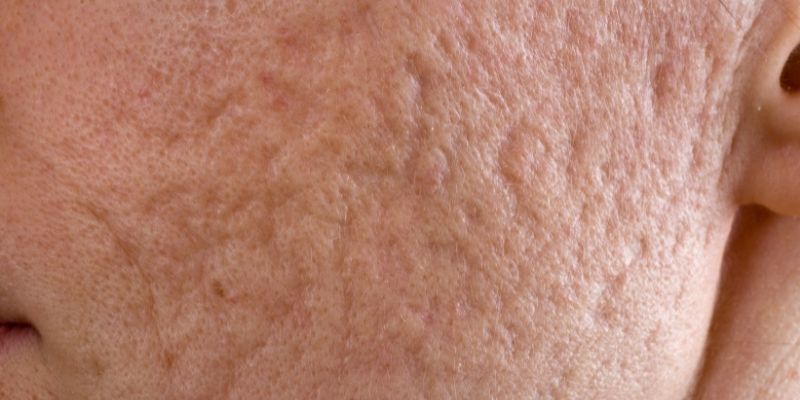How To Remove Scars On Nose?
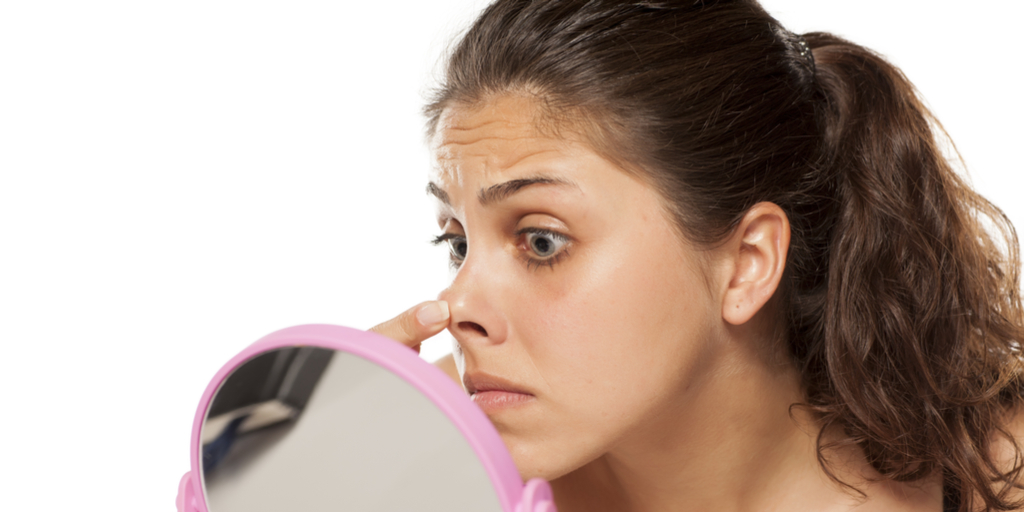
Getting a pimple on nose can be unsightly and painful. And more than just the pimple, it leaves behind a scar which is even more displeasing. Fortunately, with proper treatments, acne scars on nose can be successfully treated.
Understanding Scars On Nose
Scars on nose can manifest in two major ways. The first type of nose scarring is sunken or “holey” scars, scientifically known as atrophic scars. They can be the result of very large open pores, scabs from accidents or acne. The other type of scar is called hypertrophic scars, which are raised and bumpy. Hypertrophic scars are usually caused by nose piercing or trauma.
Dark Acne Scars On Nose
If you ever had acne and it managed to spread on your nose, then it would have left some form of scar behind. Acne scars are usually pitted or atrophic in nature. They can be best described as scars that leave “little holes” on the skin. Acne can also cause hyperpigmentation which is basically a dark mark/blemish on nose.
- Raised Acne Scars – Raised acne scars fall under the category of hypertrophic scars. These scars are bumpy due to the excessive production of collagen by the body. The body produces more collagen during the healing process than needed in order to recover the lost skin and tissues.
- Severe Acne And Scarring – Cystic acne can appear on any part of the face even on nose. These cystic pimples are very painful and large and it can leave huge scars on nose. These scars are mainly atrophic in nature (pitted, scooping holes) and they require special medical attention to heal and fade.
Nose Piercing Scars
Scars can occur on nose piercing site if proper care is not taken. Nose scars due to piercing usually come in 2 variations; common scars and keloids. Common scars are small, often red in color and they fade away on their own. However, keloid scars are a type of hypertrophic scars that are troublesome to treat. Hypertrophic and keloid scars are large, bubble-shaped and protruding. The only difference between hypertrophic scars and keloids are that the latter is easier to heal. Nose piercing scars are due to poor aftercare, infection or allergic reaction to the jewelry.
Must Watch
Nose Scar Removal Treatments
Whether a scar has popped up on your nose because of an accident, incorrect pimple extraction, disease, nose piercing, injury, etc., there are plenty of cosmetic treatments that will help you overcome any type of scar you may have on your nose. All the treatments mentioned below work on atrophic, hypertrophic and hyper-pigmented acne scars.
- Laser Skin Resurfacing – Considered a multipurpose beauty machine, Laser can heal any type of pimple related scars. Laser therapy uses heat and light to gently target the upper layer of the skin. The Laser helps to exfoliate and remove the damaged skin to reveal younger and firmer-looking skin. The laser can be used on all types of atrophic scars and hyperpigmentation.
- Chemical Peels – Removing scars by using chemical peels is not only safe but also highly effective. Peels can activate and speed up the skin’s natural healing process by lifting away dead skin cells. Always seek expert’s help if you wish to undergo chemical peel treatment. It is important to follow proper pre and post-care when it comes to the chemical peel.
- Over The Counter Creams – Many substances like retinoids and benzoyl peroxide were used traditionally to get rid of pimple scars on nose. Though they may not be effective they can help fade the appearance of the scars slightly also clearing the surrounding skin. Check with your dermatologist for a specific topical cream for your pimple scar.
History




